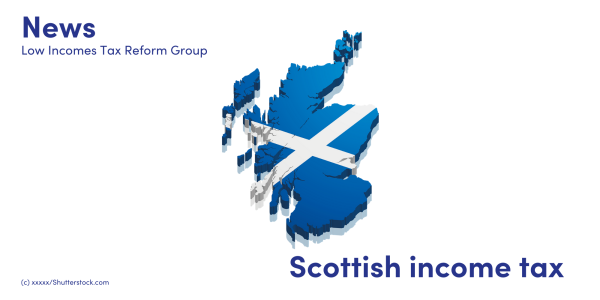I am a Scottish taxpayer: what Scottish income tax will I pay in 2021/22?
The Scottish Government has proposed the rates and thresholds for Scottish income tax that will apply to the non-savings and non-dividend income of Scottish taxpayers from 6 April 2021. These are subject to approval by the Scottish Parliament, which we expect in March 2021.

Content on this page:
What are the proposed rates and bands for Scottish income tax for 2021/22?
The proposed rates and bands for Scottish income tax from 6 April 2021 are set out below:
|
Scottish income tax rates 2021/22 |
Scottish income tax bands 2021/22 * |
|
Scottish starter rate – 19% |
£12,571 - £14,667 (£2,097) |
|
Scottish basic rate – 20% |
£14,668 - £25,296 (£10,629) |
|
Scottish intermediate rate – 21% |
£25,297 - £43,662 (£18,366) |
|
Scottish higher rate – 41% |
£43,663 - £150,000 |
|
Scottish top rate – 46% |
£150,001 and above |
* The bands assume the UK-wide personal allowance for 2021/22 will be £12,570
What income do I pay Scottish income tax on?
If you are a Scottish taxpayer, you pay Scottish income tax on your non-savings and non-dividend income.
Non-savings and non-dividend income includes profits from rental property, and earned income, such as employment income, pension income and profits from self-employment.
If you are a Scottish taxpayer, you continue to pay income tax according to the UK rates and bands of income tax on your savings and dividend income.
Am I a Scottish taxpayer?
There is more information about who is a Scottish taxpayer in our tax basics section, but in essence, if your home is in Scotland for more than half of a tax year, you are a Scottish taxpayer.
Who collects Scottish income tax?
Although the Scottish Parliament sets the rates and thresholds for income tax payable by Scottish taxpayers on certain types of income, HM Revenue & Customs (HMRC) continue to collect and administer all income tax. This means that if you have any questions about your income tax, including your Scottish income tax, you should contact HMRC.
If you are a Scottish taxpayer and have PAYE income from an employer or a pension provider, you should have a Scottish PAYE tax code (an “S” code).
Why is it important to tell HMRC my correct address?
Your correct and up-to-date address is not the only factor in determining whether or not you are a Scottish taxpayer, but it will be decisive in many cases. HMRC send correspondence, including repayments of tax, to the address they have on file. You can tell HMRC your up-to-date address using their online service.
Where can I find more information about Scottish income tax?
You can find more information about Scottish income tax in our tax basics section.
